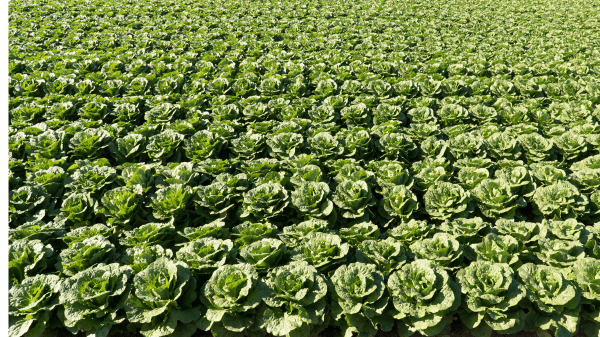The Canadian government’s notice to industry: Temporary Safe Food for Canadians licence conditions for importing romaine lettuce and salad mixes containing romaine lettuce from the U.S.
July 20, 2023 — This is to inform you of the temporary licence conditions pertaining to your Safe Food for Canadians (SFC) licence pursuant to section 20(3) of the Safe Food for Canadians Act effective for the period from September 28 to December 20, 2023.
During this period, the conditions for import of leafy greens will require you to provide a Proof of Origin that confirms your imported romaine lettuce and/or salad mixes containing romaine lettuce do not originate from the counties of Santa Cruz, Santa Clara, San Benito and Monterey in the Salinas Valley of California, U.S.
Alternatively, as an importer of romaine lettuce and/or salad mixes containing romaine lettuce from the counties of Santa Cruz, Santa Clara, San Benito and Monterey in the Salinas Valley of California, U.S., or as an importer of such products without a valid Proof of Origin, you must conform to the following:
-Your preventive control plan includes a written procedure describing how the sampling and testing requirement outlined below is implemented
-Each shipment is accompanied by an attestation by the importer, in the form provided by the Canadian Food Inspection Agency (CFIA) (CFIA/ACIA 5961 (2023/06)), attesting that: they have an official Certificate of Analysis for each romaine-lettuce product in the shipment; sampling and testing was conducted according to the temporary Safe Food for Canadians (SFC) licence conditions (points d., e., and f. below); and E. coli O157:H7 was not detected
-Each shipment is accompanied by the Certificates of Analysis issued for the romaine lettuce products included in the shipment
-The imported product was sampled and tested for E. coli O157:H7 according to 1 of the 2 sampling options described below and the testing conditions outlined in points e. and f. below:
Option 1: Finished-product sampling
- Sampling and testing is conducted after all post processing and handling steps are completed, but before the product is imported into Canada
- A sampling lot is 1 type of romaine-lettuce product and a size no larger than the equivalent of 1 truckload of product (no more than 20,400 kilograms/45,000 pounds)
- For each sampling lot, the minimum sampling and testing requirement is a total sample weight of 1500 g consisting of 60 individual random sample units of 25 g each
Option 2: Pre-harvest sampling
- Sampling of romaine lettuce in the field is conducted no more than 7 days before harvest
- A sampling lot is a 2 acre field or less of homogeneous romaine lettuce crop that has been exposed to homogeneous agricultural conditions
- For each sampling lot, the minimum sampling and testing requirement is a total sample weight of 1500 g consisting of 60 individual random sample units (grab specimens) of 25 g each
- This sampling option can be used for romaine lettuce that will be field-packed at the time of harvest
- This option is also acceptable for romaine lettuce destined for further processing before export (for example, chopped or mixed with other products) if the product is to be processed in separate batches, and a link can be established and documented between the Certificate of Analysis of the product sampled in the field and the finished product at the time of import.
-Testing with both screening and confirmation methodologies must be performed in a laboratory accredited by an accreditation body that is a signatory to the International Laboratory Accreditation Cooperation (ILAC) Mutual Recognition Agreement (MRA) as conforming to the requirements of International Organization for Standardization/International Electrotechnical Commission (ISO/IEC) 17025:2017 for specific tests
The chosen method must be on the laboratory’s scope of accreditation. The “application” section of the method chosen must be appropriate for the intended purpose, including that it is intended for testing romaine lettuce, leafy greens, or fresh fruits and vegetables.
-A presumptive positive result from a screening method is treated as a positive result for E. coli O157:H7 unless a confirmation test is performed on the original enrichment broth within 24 hours of the first test and produces a negative result (that is not detected)
The confirmation test is a cultural method that is compatible with the screening method.
If you import a product that fails to comply with these temporary SFC licence conditions, your product will be considered an unlawful import. CFIA may take enforcement action on unlawful imports, including placing an order to remove or destroy the product.
For additional guidance on these temporary SFC licence conditions and other import requirements associated with romaine lettuce from the U.S., refer to Temporary Import requirements for romaine lettuce from the United States (2023).



